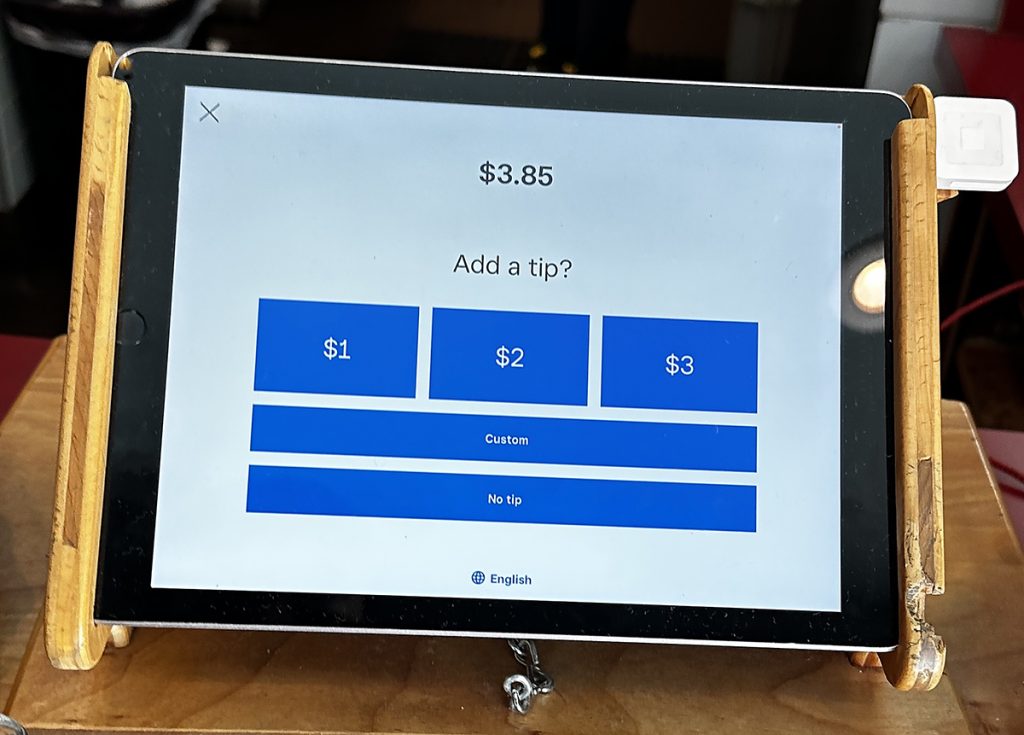
Recently, the nation has seen an influx of negative discourse surrounding tipping. The most prominent complaint is that tipping has gotten out of hand, arguing that everyone and their mother wants a tip now. As someone who worked in the restaurant industry for eight years, I recognize the value of tipping – especially when it comes to tipping servers. Before I jump into the pros and cons of raising minimum wage for service workers, allow me to reiterate why tipping is so important to folks working in the restaurant industry. First, servers are more often than not responsible for tipping out support staff – bussers, hostesses, food runners – and bartenders. The tips servers give to support staff/bartenders comes from their own tips. Yes, I agree with the notion that restaurant owners should pay staff enough to not have to burden their servers with these tip out procedures, but this is unfortunately not the case and is a fact of restaurant life. Tipping servers adequately ensures that they are not suffering a significant loss when tipping out support staff. Second, serving is a difficult job that requires immense patience, stamina, and social exertion, especially in densely populated areas like cities or tourist towns. If your server is doing a great job, they deserve a great tip, period! Lastly, servers are usually paid dirt for an hourly wage, which is what this piece is examining. For instance, my hourly wage was $3.89 per hour when I was a server. Servers rely on their tips. There are a handful of other reasons why tipping is important, but I’ll leave you with those three for now. As we head into my analysis, I’m going to set some context: my approach is focused on restaurant staff, as that is where I have experience. Though my arguments can still be applied to other tipped workers (baristas, tattoo artists, other food service workers), I am focusing specifically on restaurants. Let’s start off by looking at the benefits of raising the minimum wage for service workers.
SLAYS
Most obviously, raising the minimum wage would allow servers to rely less on tipping less. There are tons of situations in which servers are unjustifiably undertipped; maybe their guests are traveling to the US and don’t understand our tipping culture, perhaps the guest does not believe in tipping 20%, maybe it was a larger party and bad at math, or perhaps they were having a bad day, and so on. Whatever the reason may be, servers get jipped. A lot. With a higher minimum wage, this gap in adequate tipping would be accounted for. Consider what I mentioned above in regard to servers having to tip out support staff: with a higher base wage, having to tip out support staff would be much less of a burden on the servers. The next pro is financial stability. I worked at a restaurant in a tourist town, so we would have a busy season and an extremely slow season. In these slow seasons, tips obviously decrease substantially. With a higher base wage, servers in similar situations don’t have to worry as much about this drop. Some restaurants will allow servers to pick up hosting shifts to collect a higher wage in the meantime, such as the one I worked at, but not all restaurants operate this way, leaving a lot of servers to worry about their finances in the slow months. Further, higher minimum wages for servers would increase server retention at restaurants. Knowing that they have a more stable income, servers will be more likely to stick around when it gets slow, and will likely feel more valued by their employer.
NAYS
There are two distinct cons in raising minimum wage for servers. First, increased wages would lead to increased labor costs for employers, which would branch out into a handful of other issues within the restaurant. Owners would likely increase menu costs to compensate, affecting consumers and potentially business. Restaurant owners would also be likely to hire fewer workers, leading to fewer available jobs and more strain on existing service workers. Second, tipping would inevitably decrease. People going out to eat would know that service workers are making more in their hourly wage, so they would tip their server less as a result. Even though servers are making a higher wage, this may not be substantial enough to meet the cost of living – this assumption on the part of diners could hurt waitstaff in the long run. The debate on whether or not to raise wages for tipped workers is a contentious issue that has valid arguments on both sides. As someone who worked in the restaurant industry for a third of my life thus far, I’m interested to see the trajectory this topic will take. I anxiously await the outcome of this discussion, especially considering this topic was on the Massachusetts ballot in this year’s election. Will wages be raised? If so, will servers rejoice, or recoil? •